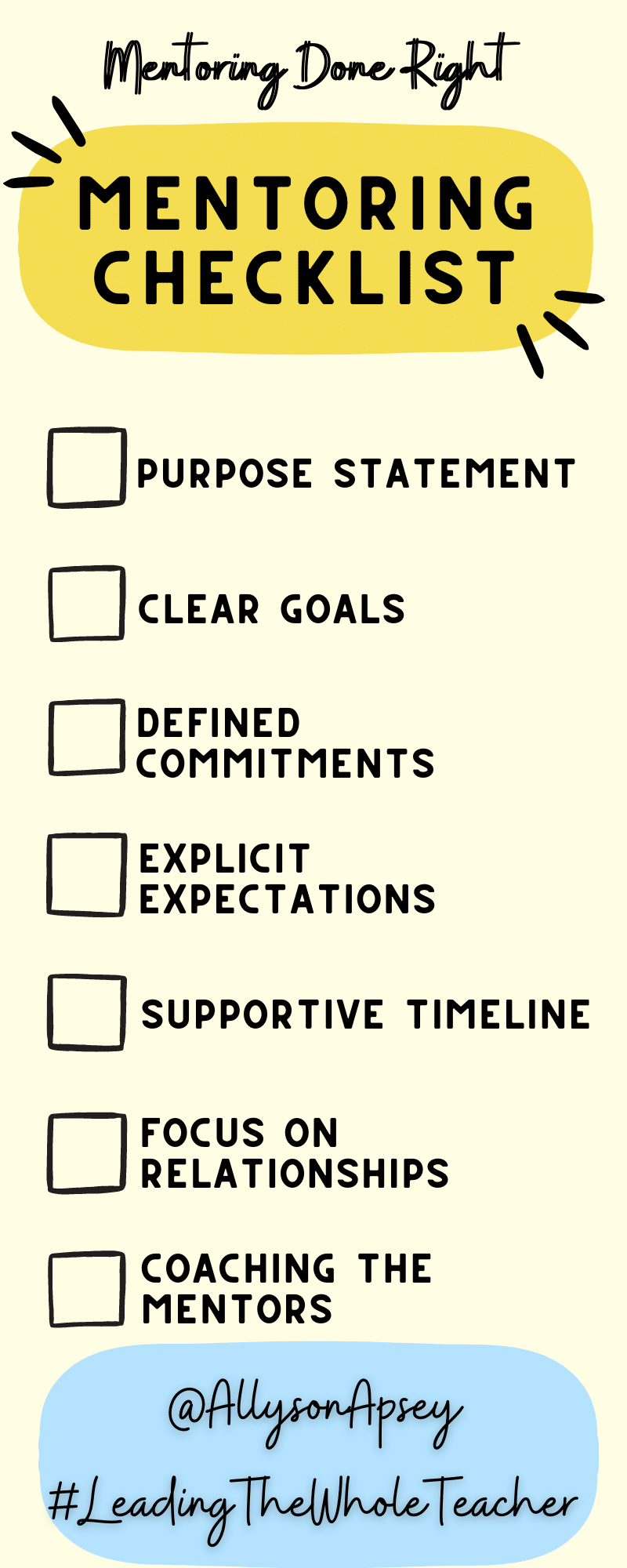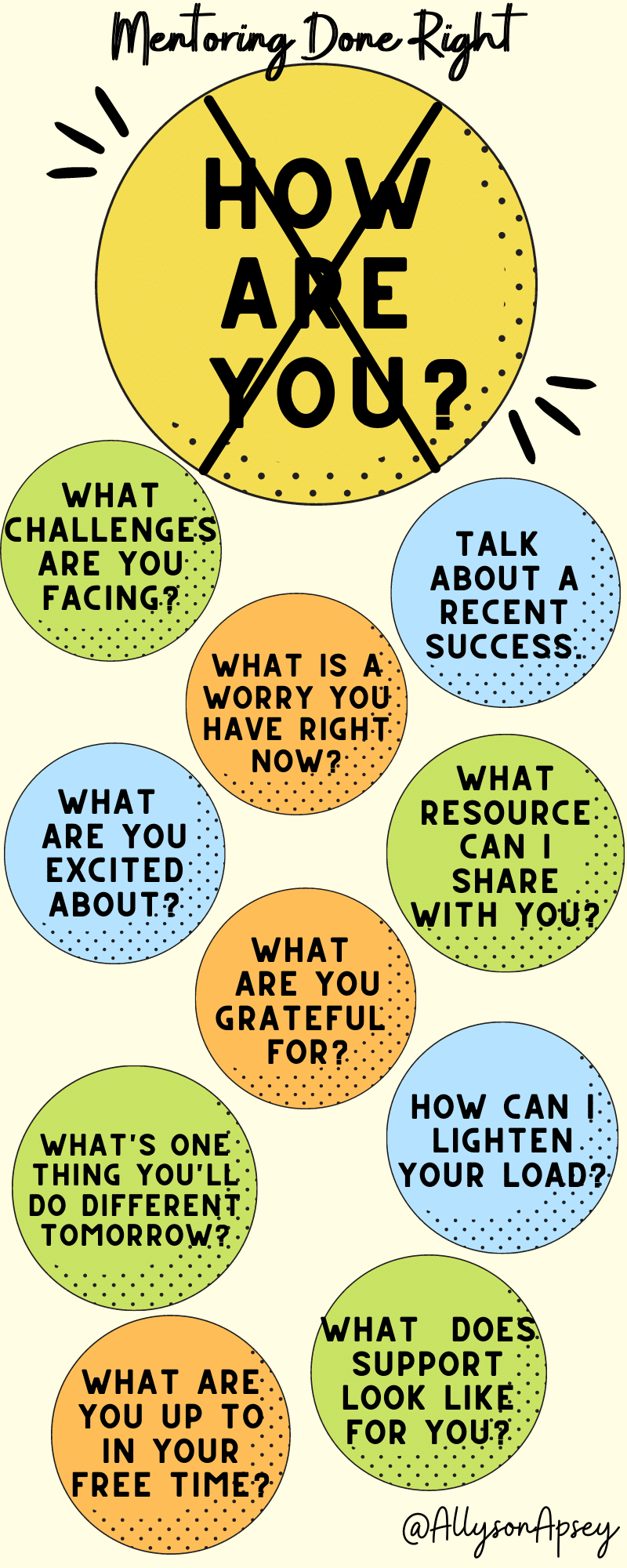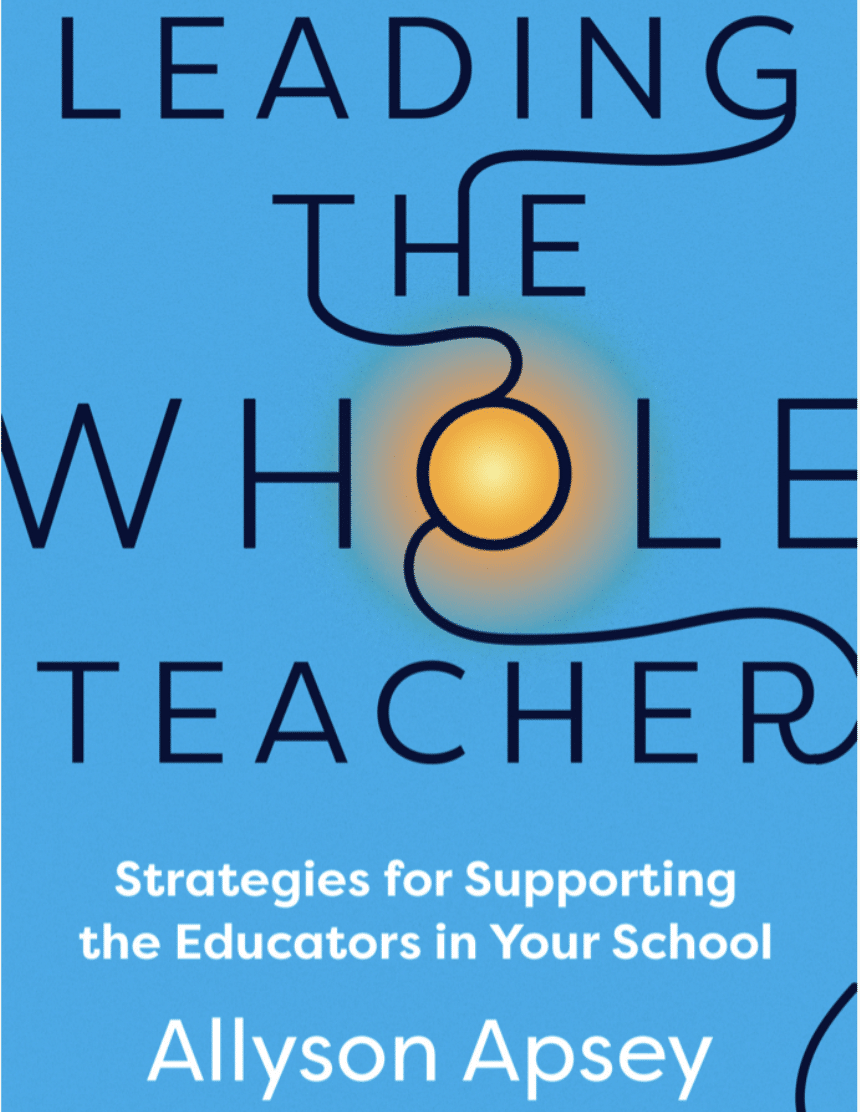One of the most important relationships in schools is the relationship between new teachers and their mentors. Yet, if I had a dollar for every school or district that had a mentor program in name only, I’d be able to purchase ALL the items in my Amazon cart. It’s not that districts don’t know about the importance of effective mentoring, they do. Unfortunately mentoring programs often are put on the back burner because more pressing issues tend to arise. We all agree that the critical teacher shortage is one of the most pressing issues we are facing in education right now, so let’s face this problem head-on by dusting off that dated teacher mentoring program and give it a facelift. Or, for many districts, it may be best to throw the old program in the recycle bin and start from scratch. We need to prioritize efforts and resources to put together a mentoring program that will support and retain new teachers AND be sustainable.
I was fortunate to have the opportunity to revamp my district’s mentoring program last year. As I developed the program, I leaned heavily on my experience as a leadership and educator wellness coach. I researched best practices for mentoring teachers, as well as successful mentoring programs in the private sector. Here is a checklist for creating a robust, successful and sustainable teacher mentoring program:

Purpose Statement: It is important to define the purpose of the mentoring program in your district, and I recommend doing so with a very brief statement. Anyone should be able to read the statement and easily understand why your district’s mentoring program exists. Here is an example:
Our mentoring program provides new teachers with the support, encouragement, and information they need to learn, grow and enjoy their first years of teaching.
Clear Goals: Once the big-picture purpose of the mentoring program is established, the next step is to create goals that delineate the intended outcomes of the mentorship. These goals will serve as a guide for the action plan and mentoring relationships. Here is an example of goals for a mentoring program:
- Mentors provide encouragement, support and feedback to new teachers and teachers in new positions to create reciprocal and trusting relationships that lead to improved job satisfaction and performance, and ultimately teacher retention.
- The support of an effective mentor will accelerate the mentee’s growth and learning as well as create a lasting, positive and productive connection between the mentor and mentee.
Defined Commitments: Mentors need to know what they are getting into, and mentees need to understand their role in the relationship. Setting the stage right from the beginning, hopefully even before a veteran teacher agrees to be a mentor, helps everyone understand what it means when they commit to the mentor program.
Here is an example of mentor commitments:
Mentors experience great benefits from mentoring, including the opportunity to enhance their own professional practices through coaching. Mentors also often experience a sense of renewal as they reflect back on their first years as a teaching and entire teaching career. It is fulfilling to offer support and strength to a new teacher and mentors benefit from the collaboration nearly as much as the mentees do. As a mentor, it is important to be willing to:
- Develop a trusting relationship with your mentee, which means being open and vulnerable.
- Be an active listener and be willing to go beyond the surface level to provide the support your mentee needs.
- Value the mentoring partner as a whole person.
- Avoid the urge to have your mentee do things “your” way and help him/her solve problems in their own way.
- Support your mentee with feedback that enhances strengths and strengthens areas for improvement.
- Respect the confidentiality of the mentoring relationship.
- Commit to the meeting and observation schedule as outlined.
- Be accessible as needed.
- Laugh and have fun together!
Here is an example of mentee commitments:
Having a dedicated mentor is a true gift, and it is needed for all teachers who are new to the profession or new to their position. Take advantage of this gift by opening yourself up to being coached and guided by your mentor. Know that both of you will benefit from this relationship. As a mentee, it is important to be willing to:
- Number one commitment–ASK FOR HELP when you need it.
- Develop a trusting relationship with your mentor, realizing that the mentor/mentee relationship is reciprocal.
- Answer questions thoughtfully and honestly, even when it hurts a bit to disclose the truth.
- Know that every teacher has areas of strength and areas for growth, and the areas for growth always outnumber the strengths in the first few years of our admirable profession.
- Commit to the meeting and observation schedule as outlined.
- Be open to feedback from your mentor.
- Respect the confidentiality of the mentoring relationship.
- Laugh and have fun together!
Explicit Expectations: Mentors want to know the expectations, like how frequently they should meet, if observations are required, etc. Meeting regularly is always part of the mentoring expectations, but including opportunities for reciprocal observations of each other’s teaching is an important part of the process also. A mentor will get valuable insight into the mentee’s strengths and areas for growth by observing him/her teach. It can be an incredible learning opportunity for the mentee to see the mentor in action, especially when tied to one of the mentee’s goals. For our mentoring program, we decided upon the expectations below, and further information about the expectations can be found by clicking on the slideshow that is linked.
- Weekly Check-Ins
- Bi-Weekly Scheduled Meetings
- Monthly Observations
- Be accessible for help as needed
Supportive Timeline: To help make sure that things are addressed in a timely fashion and that important things are not forgotten, it is helpful to have a timeline of mentoring support. For instance, you might begin talking about parent/teacher conferences a couple weeks before the mentee needs to start scheduling them. It is important to work through report cards several weeks before they are due. Before school starts, mentors can go through simple record-keeping items, like how to take attendance and/or lunch procedures. This timeline will be unique to each school and/or district, and often content specific. For instance, the timeline for special education teachers will need to include information on IEP reporting, scheduling, etc. Creating this timeline with a team that includes veteran teachers will help make sure it is robust and thorough.
Focus on Relationships: The effectiveness of the mentor/mentee relationship hinges on one thing more than anything else–having a positive and trusting relationship. We don’t learn from people we don’t like, and we are not willing to be open and honest if we don’t trust each other. It is crucial that the mentoring program focuses on supporting healthy mentoring relationships first. You can check out my mentoring program slideshow for ideas on how to put relationships in the forefront of the program. As an example, you can see that when I introduce the program, I encourage the mentor and mentee to come up with their own theme song and I give them some examples.
Coaching the Mentors: Mentors need mentors too. For a successful mentoring program, it is important to provide coaching to help mentors develop their skill set. Districts can do this by providing an initial training on the program and then scheduling regular meetings to provide professional development, to review the mentoring timeline, to discuss challenges they are facing and how to solve them, and to help them support each other. Here is a graphic (link to PDF of the graphic) that represents learning we did on how to go beyond surface level questions when checking in with mentees:

It is true that successful mentoring relationships help both the mentee and the mentor learn, grow, and find joy in their work. If we are asking teachers to invest time, energy and support in each other, they deserve to have a thorough and well thought out mentoring program to lead the way. I would love to hear your thoughts on teacher mentoring programs. What might you add to the checklist I came up with?
“A mentor is someone who sees more talent and ability within you than you see in yourself, and helps bring it out of you.”
-Bob Proctor


Living life with a “Serendipity Mindset” does not mean pretending that everything is a happy accident. It means knowing that everything we go through, from our highest of highs to our lowest of lows, offers us beautiful gifts–IF we look for them. You can check out the #SerendipityEDU books out on Amazon by clicking HERE. Each book is filled with inspiration to help us discover the gifts in along life’s journey. With the addition of a middle-grades chapter book called The Serendipity Journal, there is a book for every age level. And, want to hear the best news yet?!? My newest book, “Leading the Whole Teacher” will be released soon!

Pingback: Who is mentoring your new teachers? – Serendipity in Education